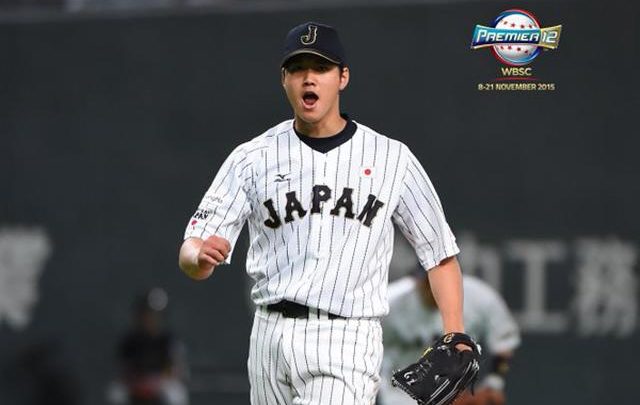
Further Limits on Otani’s Bonus Potential Good for Cubs, Bad for Manfred
At this point, I’ve written more about Japanese phenom Shohei Otani than I have many Cubs players, and for good reason. Both the player and the overall situation in which he is currently embroiled fascinate me to no end. Not only does he possess the kind of generational talent that spawns folk legends, but the timing of his desire to come to MLB means that the new CBA is playing hell with the proceedings.
We’ve been speaking theoretically about how much Otani can earn in the States, both in terms of his potential as a true free agent and under the considerable restrictions set forth by the CBA, but a new report from ESPN presents some actual numbers. If the information contained therein is correct, the two teams with the most international bonus money remaining are the Rangers ($3,535,000) and Yankees ($3.25 million).
While there’s still some finagling that can take place between now and the offseason, this is a very significant bit of information. Teams are initially divided up into three bonus-pool tiers ranging from $4.75 – 5.75 million and they can acquire up to 75 percent more of their pool via trades. With that in mind, we’ve been operating under the assumption that Otani could command up to $10 million-ish in bonus money.
Except, like the Nazis in Raiders of the Lost Ark, we were (say it with me) digging in the wrong place!
The international signing period opened on July 2, which means teams have already been busy trying to lock up talented players. What’s more, I don’t think (m)any teams really expected Otani to announce his intention to come to MLB next season, which means they weren’t hoarding up max dollars to create an advantage when it comes to signing him.
Not that such an advantage really exists, as many people have pointed out over the last week or so. A guy who’s willing to forego upwards of $190 million to come over right away probably isn’t going to be swayed by an extra couple million here or there. That’s very good news for a team like the Cubs, who are limited to a max bonus of $300,000 for any individual player due to exceeding their bonus cap under the previous CBA. And finding that the max bonus any team can offer is a mere $3.5 million is even better news.
Commissioner Rob Manfred, however, isn’t viewing it that way. He couldn’t care less about the Cubs’ chances of landing the two-way superstar, but I can guarantee you he is very concerned with the implications of Otani’s suppressed market.
“We’re always interested in having great players in Major League Baseball,” Manfred said recently. “From my perspective, I’m more concerned about having the right, durable system than whether a player comes this year or two years from now.”
While Manfred’s comments were couched as addressing a report in Japanese media that NPB’s owners were discussing changes to their posting system, I believe MLB’s boss has a bigger domestic issue to worry about. And by that I mean the likelihood of having to preside over contract shenanigans when it comes to luring Otani to Team X.
When something seems too good to be true, it probably is. I suppose it’s possible that Otani really is in it just for the love of the game and money means nothing, but the same is not true for everyone surrounding him. It’s hard to imagine a scenario in which he comes to the US for a bonus between $300K and $3.5M and then plays under a $550K annual deal for a few years, then gets arbitration raises before eventually hitting free agency.
So now you’ve got the possibility of teams negotiating back-room deals with a prearranged contract extension that would completely circumvent the spirit of the CBA. Sure, plenty of players have signed extensions while still under the bounds of their rookie deals, but none of them have been as coveted as Otani. Nor have they been as restricted by bonus limits.
Consider that the slot value of the 15th pick in the 2017 MLB draft was $3.59 million, more than Otani can get at this point. And the No. 1 pick was valued at about $7.8 million, well more than the Otani would earn in bonus money and salary in his first three MLB seasons. But don’t think Manfred is acting as an advocate for the player here, simply urging him to maximize his earning power.
No, the commish just doesn’t want to have to investigate and rule on whether teams negotiated honestly and openly and within the letter and spirit of the current rules. And I get that, I really do. It could absolutely turn into a big old mess — a poop play, if you will — especially given the notoriety of the primary party involved.
That’s taking us back into the theoretical realm, though, and bridges we can cross when come to them. Or not. The moral of the story is that the Cubs appear to be in an even better position now than when we first started exploring the myth and mythtery…ugh. The myth and mythter…dammit. The legend of Shohei Otani.
My apologies (but not really) if you’re already tired of this stuff, because I’m going to keep writing about it until this guy actually signs.

